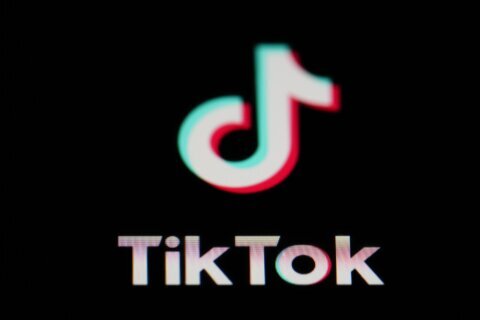Inflation is everywhere in the United States right now. The average price of a pound of ground beef increased 16.1% between February 2021 and February 2022, according to the U.S. Bureau of Labor Statistics. Between the fourth quarter of 2021 and the fourth quarter of 2020, the median home sales price increased 13.77%, according to the U.S. Census Bureau and the Department of Housing and Urban Development.
After an extended period of low inflation in the U.S., it is back in a big way. Historically, the annual inflation rate has averaged just over 3%. But in February 2022, it reached 7.9%, the highest annual rate since January 1982.
A few different things can affect inflation: the cost to produce something, rising demand for the item or even a country’s monetary policy. In addition to directly affecting prices, inflation indirectly influences other things, like the interest rates on the loans you pay.
Here’s what you need to know about how inflation impacts interest rates on mortgages, personal loans, credit cards and other forms of credit.
[Read: Best Rewards Credit Cards.]
Inflation Rates vs. Interest Rates
Inflation is a metric used to measure how the cost of goods and services increases over time. It’s typically represented as a percentage change from month to month and year to year.
Inflation rates are based on the Consumer Price Index, which tracks a basket of goods and services that a typical household would buy, such as food, fuel, utilities, apparel, medical care, vehicles and more.
Interest rates, on the other hand, represent the cost of borrowing money as an annualized rate. Lenders determine which interest rates to charge their customers based on economic conditions, creditworthiness, the type of loan and other factors.
[Read: Best Credit Cards for Excellent Credit.]
How Inflation Influences Interest Rates
Inflation doesn’t directly affect interest rates, but the two are generally correlated through indirect means.
“The prolonged availability of low interest rates can flood the market with extra cash as consumers increase their borrowing and spending, which eventually leads to a rise in inflation,” says David Tuyo II, CEO and president of University Credit Union in California. “This creates a balancing act because as inflation rises, interest rates are also likely to rise, which slows consumer spending and borrowing again, and eventually leads to decreased inflation and normalized standards.”
Here’s a deeper dive into what you need to know.
Short-Term Interest Rates
The Federal Reserve serves many purposes, one of which is to maintain a satisfactory inflation level. To promote stable economic growth, the Fed has a goal of maintaining a 2% inflation rate.
If inflation levels are too high or too low, the Federal Open Market Committee, a branch of the Federal Reserve, may raise or lower its federal funds rate. This interest rate is what banks charge each other to borrow or lend excess reserves on an overnight basis.
The prime rate “moves in lockstep with the federal funds rate and affects many loans that are priced based on the prime rate,” says Bob Dieterich, executive vice president and chief financial officer of 1st National Bank of Scotia in New York.
More specifically, the prime rate is what lenders use to determine interest rates on shorter-term loans, such as credit cards, student loans, auto loans, personal loans and adjustable-rate mortgages.
As the inflation rate increases beyond acceptable levels, the FOMC may hike its federal funds rate, causing lenders to increase their prime rates. As a result, consumers are less likely to borrow money. “As the cost of debt increases for borrowers, this causes the economy to slow,” says Tuyo, which can help temper rising inflation.
In contrast, if the inflation rate falls to a level that indicates economic stagnation or contraction, the FOMC may slash its interest rates, which ultimately encourages more borrowing, helping to increase consumer spending and economic growth.
For the past two years, since the start of the coronavirus pandemic, the Fed has kept the target federal funds rate between 0% and 0.25%. Due to the strength of the labor market and growing inflation concerns, the FOMC raised the federal funds rate target range a quarter-point. Fed officials anticipate the rate will increase six more times in 2022.
Mortgage Interest Rates
The FOMC doesn’t set interest rates for mortgage loans, and while its federal funds rate can have an impact on the variable interest rate on an adjustable-rate mortgage via the short-term interest rate index your lender uses, it doesn’t affect fixed mortgage rates.
That said, fixed mortgage rates are influenced by the 10-year Treasury, which is a government bond issued by the U.S. Department of the Treasury with a 10-year maturity. Because it’s backed by the federal government, investors consider the 10-year Treasury to be a risk-free investment.
“When inflation expectations are high, bond purchasers will bid less for longer-term bonds,” says Dieterich, “which increases rates on the bonds as well as the mortgages that use them as a basis for pricing.”
The average interest rate for a 30-year, fixed-rate mortgage started rising at the end of December 2021, jumping from 3.05% on Dec. 23 to 4.41% on March 24, according to Freddie Mac.
What This Means for You
The impact of inflation on interest rates can vary based on your current loan types and your borrowing plans. Here’s what to expect with different types of credit:
— Credit cards. The vast majority of credit cards have a variable interest rate, which means that the rate fluctuates over time based on the prime rate. You can generally expect your interest rate to change within a month or two of a change to the federal funds rate, and it’s typically in accordance with the rate change. For example, if the FOMC increases its rate by 0.25, expect that increase to your credit card annual percentage rate.
— Personal loans. In general, personal loans have fixed interest rates, which don’t change over the life of the loan. If you have a personal loan currently, inflation won’t change your interest rate. However, personal loan companies will likely increase their interest rates for new borrowers within a month or two of a federal funds rate hike, so if you plan on taking out a personal loan soon, you may pay more interest.
— Lines of credit. If you have a personal line of credit or a home equity line of credit, your interest rate will typically be variable. This means that your interest rate could increase within weeks of a federal funds rate hike. In some cases, lines of credit may allow you to convert some or all of your existing balance to a fixed interest rate. If that’s the case, locking in a fixed rate now could save you money, as the FOMC is expected to increase its rate multiple times throughout 2022.
— Auto loans. As with personal loans, auto loans typically have a fixed interest rate, so you don’t have to worry about your borrowing costs increasing on an existing loan. However, increases in the federal funds rate can cause auto loan interest rates to rise for new borrowers.
— Student loans. If you have federal student loans, your interest rates are fixed for the life of the loan, so there’s no need to worry about inflation impacting your rate. However, private in-school student loans and student refinance loans can come with a fixed or variable interest rate. An increase in the federal funds rate will result in an increase to your variable rate on an existing loan, as well as on both fixed and variable rates on new loans.
— Mortgage rates. If you have a fixed mortgage rate or you’re in the fixed period of an adjustable-rate mortgage, which can last anywhere from one to 10 years, inflation won’t impact your current rate. But if you’re past the fixed period on an adjustable-rate mortgage, your rate typically changes every six or 12 months based on the short-term index your lender uses, such as the Secured Overnight Financing Rate. Prospective homebuyers can also expect higher interest rates on new mortgage loans.
[Read: Best Mortgage Lenders.]
What You Can Do to Combat Rising Interest Rates
If you’re concerned about how increasing inflation and interest rates will impact your budget, there are some steps you can take to limit their impact on you:
— Pay down credit card debt. If you have a credit card balance, make it a priority to pay it down as quickly as possible. Tuyo recommends using a personal loan to consolidate your debt and convert it to a loan with a fixed interest rate. Then, prioritize paying your credit card balance on time and in full every month going forward to avoid interest charges.
— Borrow only when necessary. Rising interest rates can discourage borrowing because of the higher cost associated with the loan, and that’s not always a bad thing. If you’ve been considering taking out a personal loan or using a credit card to buy something you don’t need, it may be good to reconsider.
— Refinance your adjustable-rate mortgage. Fixed mortgage rates are already on the rise, but if you stick with your adjustable-rate mortgage, you could ultimately pay a lot more. Take some time to research your options to determine if refinancing is right for you.
— Improve your credit. If you do have plans to borrow soon, consider taking the time to improve your credit score before you apply. While interest rates are increasing in general, having a high credit score can help you secure a lower rate and maximize your savings.
The important thing is to be mindful of how your borrowing and spending habits impact your financial well-being and to adjust your habits based on economic conditions.
More from U.S. News
How Federal Interest Rates Work
What Is a Loan Prepayment Penalty?
Should You Lock In a Mortgage Rate Today?
How Inflation Can Impact Your Loan Interest Rates originally appeared on usnews.com







